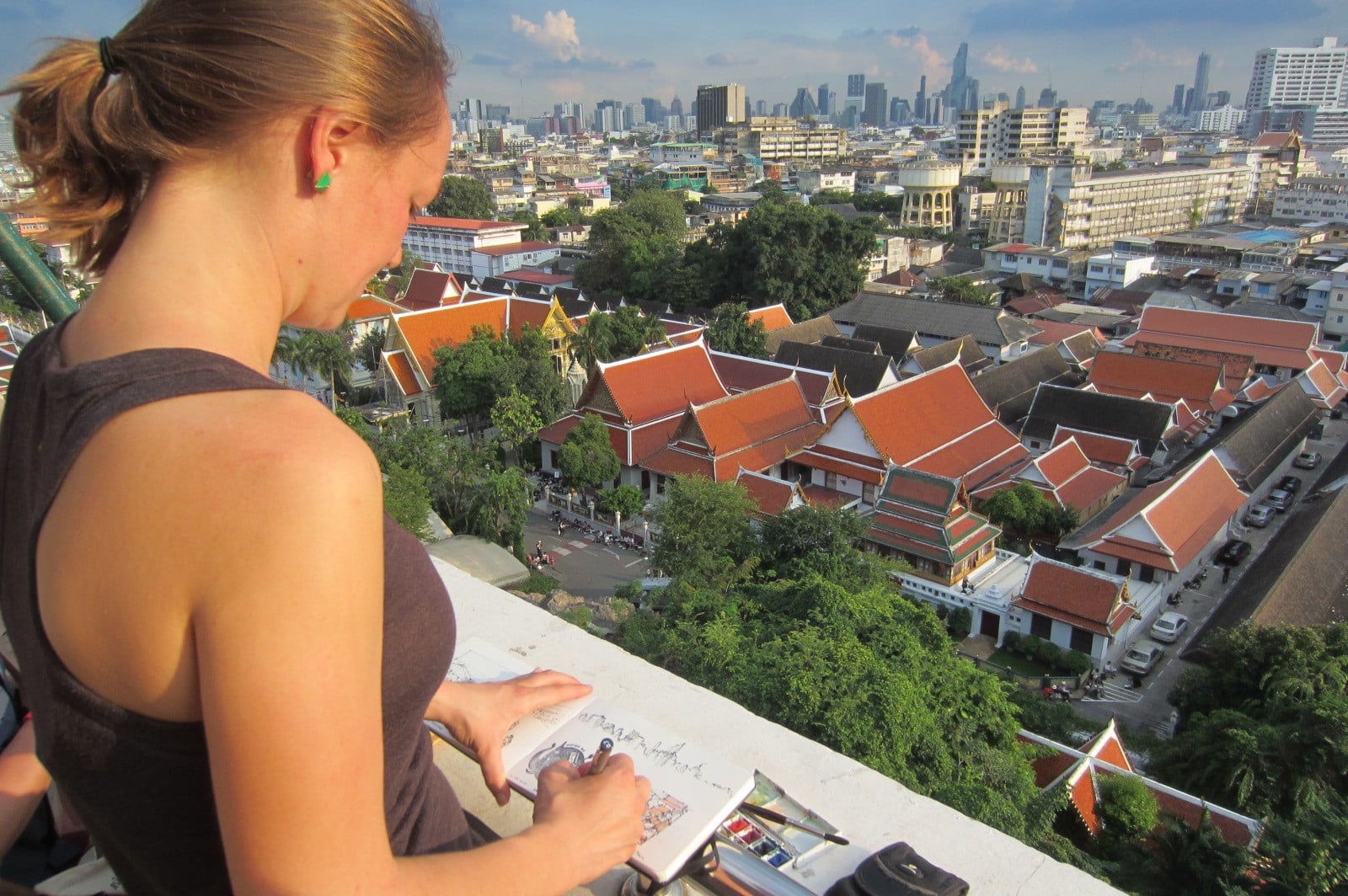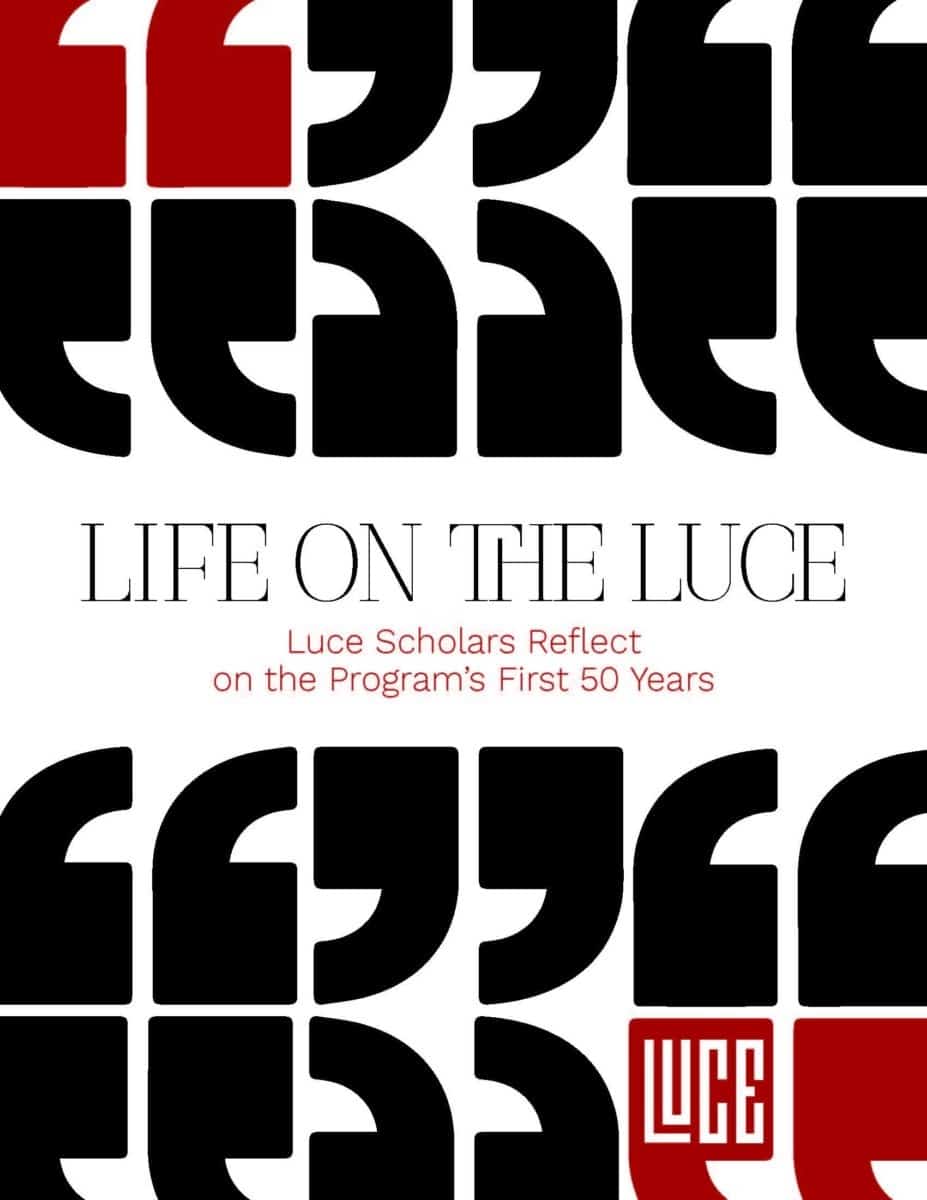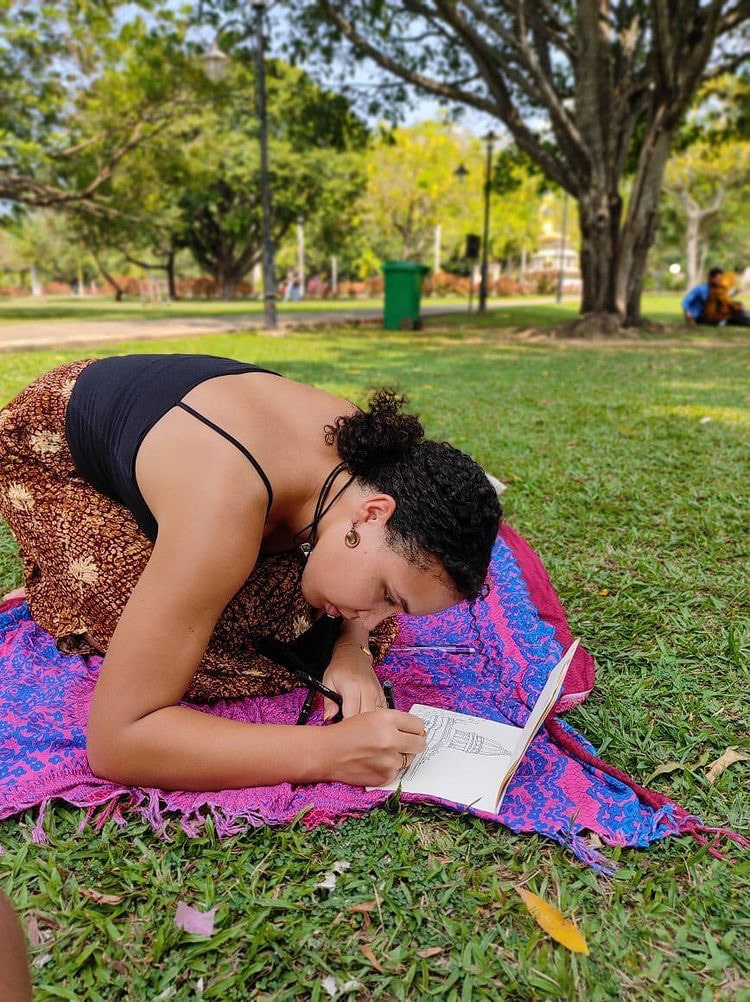Before moving to Bangkok, opinions I heard about the city seemed to fall into two distinct groups: enthusiasm (from former residents, including Luce alumni) and dislike (mostly from people who had only been as visitors, Thai and foreign alike). I was curious, then, to experience this divisive urbanism for myself. Evolving from visitor to resident over the past several months, I’ve grown to appreciate Bangkok as I discover and learn more about this sprawling megacity.
As a public-space enthusiast, I’m thrilled that Lumpini Park, one of my favorite spots in the city, is near my apartment and has become part of my daily routine. Morning runs and walks during my commute offer many views of public life in the park, which is filled with runners at dawn and dusk (the park nearly empties in the mid-day heat), dozens of Tai Chi groups, and high-BPM, dance-music-driven, free fitness classes (even at 6 a.m.!). If judged solely by this park, Thais are the fittest people I’ve encountered. True to Thai culture, though, there’s also food nearby: breakfast ramen and fruit stalls inside the park and street food lining the borders. For a wallet-breaking $1 annual fee, I joined a gym in the park where I swim laps and practice my Thai with old ladies in the pool. (Fortunately, even basic language skill seems to garner a response of “Geng maak!” or “Good job!”) Even close to home, the opportunities to observe public space and public life in Bangkok are everywhere.
Across the city, the area around my office offers another portrait of Bangkok urbanism: streets so narrow and full of street food, cars, and motos that my co-workers frequently pull me towards the side of the street and admonish my cavalier, pedestrian-first attitude. Although this neighborhood was clearly not designed with pedestrians in mind, I still enjoy being surrounded by the energy, sights, sounds, and smells of this dense neighborhood each day.
Several projects at my placement organization, Landprocess Landscape Architecture & Urban Design, focus on public space in Bangkok though the lens of landscape architecture. Visiting projects with colleagues who helped design the spaces—and also dealt with project politics—has been educational from both design and cultural standpoints. For instance, a Thai row-house neighborhood was stripped of several buildings and facades to create a contemporary outdoor space that merged, down to the details, traditional and modern forms. Conversations with colleagues and design themes at work have made me think more about the ways that cultural values influence built form, and how this plays out in both large-scale urbanism and individual spaces in Thailand.
Thanks to my boss, I had the opportunity to gain teaching experience during my Luce year. Alongside her, I co-taught a landscape architecture studio and joined an undergraduate thesis review committee. It’s been interesting both personally and professionally to see design education in a new cultural context, noting what is similar to my experience and what is not, and comparing observed pedagogies between the two Thai programs.
My observations of urbanism in Bangkok, normally a rather quiet activity, found an unexpectedly social outlet when I joined an urban sketching club—the Bangkok Sketchers, an active group that hosts day-long sketching events around the city. Thai (and one American) sketchers young and old, hobbyist and professional, perch on sidewalks with small sketchbooks and watercolor sets. Recently, the group hosted 2016’s Asia-wide annual sketch conference where members of urban sketching clubs from around the continent visited Bangkok for a weekend of observing, sketching, lectures, and comparing notes on tools and techniques. Sketching is a tool for observing the city, and this activity benefits my public space interest and provides a way to document my Luce year—in addition to meeting friendly (and very talented) Thais.
There’s much more ground to cover in exploring Bangkok—more than six months can fit—so I’ll hop to it and moto, skytrain, metro, and canal-boat my way around town, watching and learning wherever I go.


